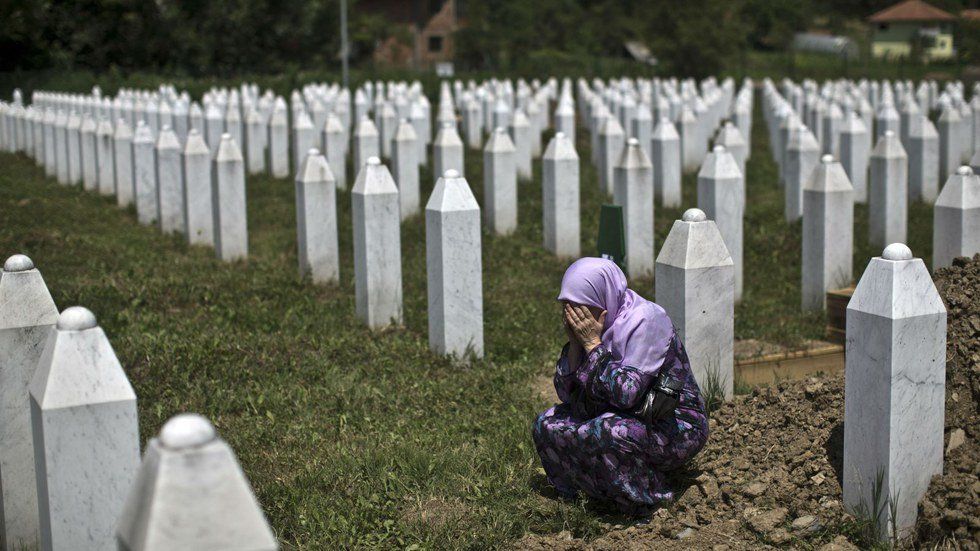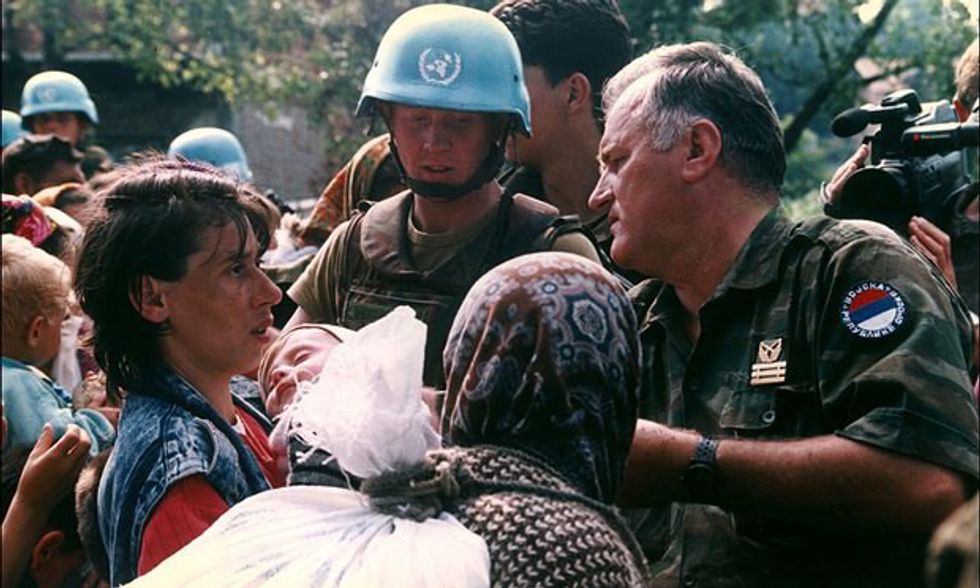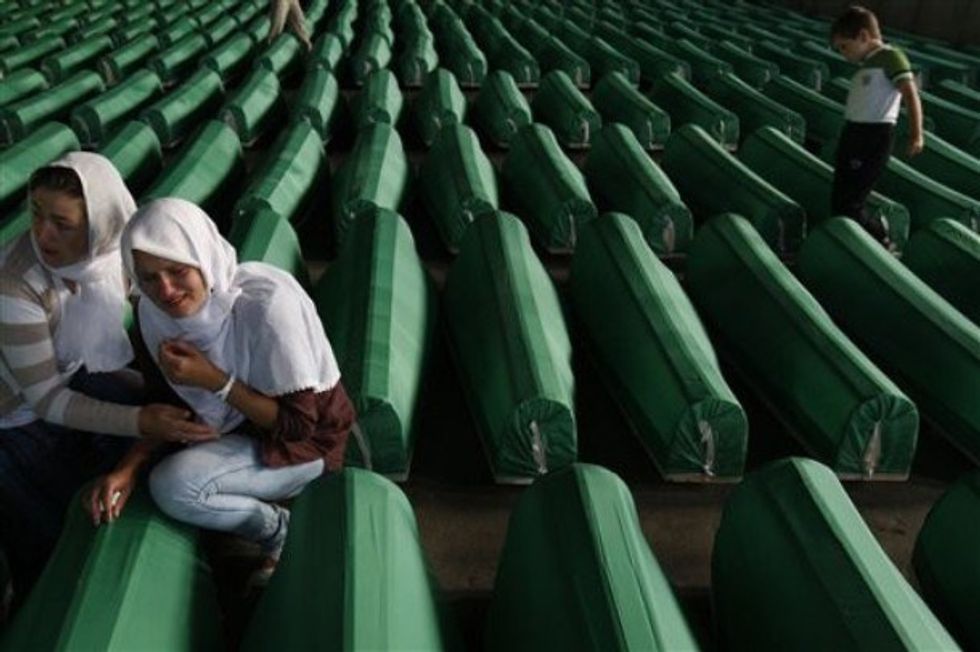I’m writing this article whilst staying in Bosnia and Herzegovina, 22 years after forces burned down the same house I am sitting in. Approximately 186 miles away from Srebrenica, television and radio programs urge us not to forget this awful injustice to humanity. Unless you’re Bosnian like me, or followed the Bosnian war closely in the 90s, you have probably never heard of Srebrenica. You probably can’t even pronounce it either.
But that’s OK. I’m not here to make you feel guilty for being uneducated on the topic. Our school system might be to blame for that one, anyway. Now I am going to share some information on something that breaks my heart and I’m sure you will be feeling pretty depressed by the end of this. My apologies in advance.
Srebrenica is a town nestled in eastern Bosnia that was declared a “safe area” in 1993 by the United Nations. UN peacekeepers were in charge of protecting its inhabitants and preventing it from falling into the hands of Ratko Mladic’s Serb forces. No one ever anticipated what would happen next. On July 11, 1995, Srebrenica fell and the Serbs killed over 8,000 Bosnian Muslims over the next ten days. Yes, a “safe area” fell, and it fell hard. People tried to escape, but it was impossible because Mladic blocked roads and even stole UN vehicles and uniforms to trick Bosnian Muslims into surrendering.
There are so many different theories and reasons as to why Srebrenica fell. This clearly should not have happened with the UN support, right? UN member states were asked to provide a total of 37,000 peacekeepers to defend the town’s 60,000 inhabitants. This number quickly changed to 7,600, not even half the size of the first request. Whether or not this was because no one thought anything major would happen or they simply did not want to get involved in the conflict, it is hard to tell. The UN did have peacekeepers in Srebrenica for the next two years, but the number slowly shrank.
The United Nations was a complete failure in Srebrenica. In fact, the rest of the world was a complete failure for ignoring Srebrenica. I understand that Bosnia probably wasn’t on the top of everyone’s “Let’s Help Them” lists, but that does not make it okay to brush off genocide like it is an unwanted crumb on the dining room table. People saw videos on the news of what was happening in Bosnia, remarked, “That’s quite terrible," and went back to eating their meals.
Despite the evidence of mass graves uncovered in Srebrenica, people still deny that what happened was genocide. Let me just clear something up for these people. Genocide is defined as, “the deliberate and systematic extermination of a national, racial, political, or cultural group”. In this case, Bosnian Serbs were killing Bosnian Muslims. There is plenty of evidence to prove that what happened was indeed genocide. David Rohde described the denial in conversations between Bosnian Serbs,
"They fervently argued—despite 93 mass-grave exhumations and 6,827 DNA identifications of the dead—that the mass killings have been grossly exaggerated."
Nope, this is definitely not an exaggeration, it's just the truth. To deny genocide is to deny science. Of course, some Bosnian Serbs still claim that it's impossible for that many people to have died. We have the facts; they are just lying to themselves.
After the genocide, the Potocari memorial site was founded in Srebrenica to honor the victims. The flower of Srebrenica was created as a symbol of remembrance. The white color represents innocence and the green center represents hope. The 11 petals stand for July 11, 1995.
Even if this article is the first time you have ever heard of Srebrenica, I want to remind you to never forget it. Not because I am Bosnian, but because this happened in Europe-the same continent that is home to the Eiffel Tower and the London Eye. Of course, lots of unfortunate things have happened in Europe recently, but at the time, another genocide like Hitler’s was unexpected.
The need for truth and justice in the Balkans is like the need for clean water in a third-world country. Without some kind of truth, we cannot move forward. Here, we have a major truth and that is only enough to kick-start the engine. Srebrenica is important because it one of the first pieces of evidence that can describe what really went down in Bosnia during the 90’s. There is absolutely no reason the world should sit back and watch something like this happen again.
























